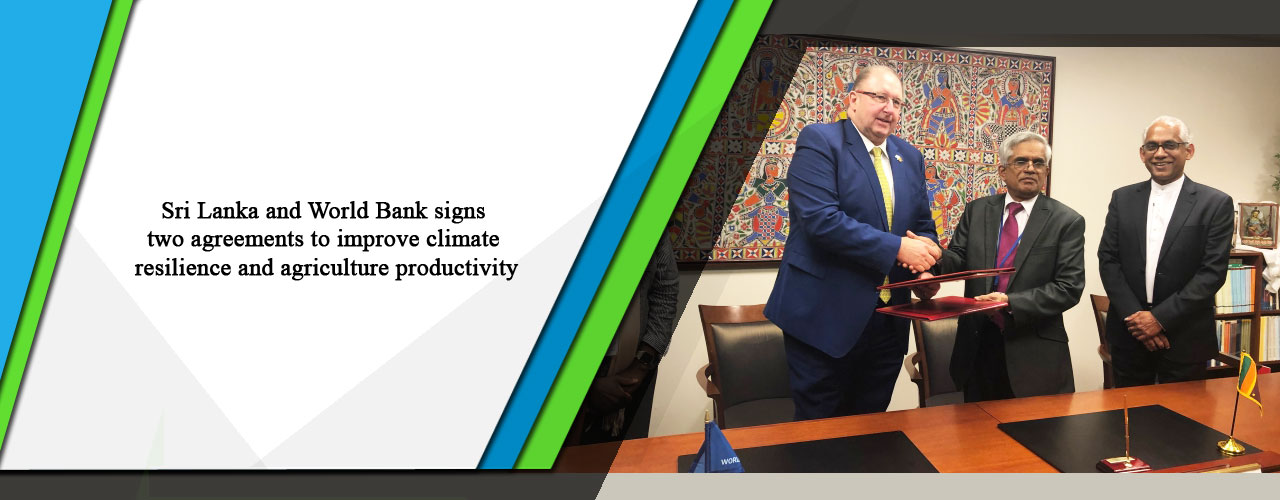Sri Lanka and World Bank signs two agreements to improve climate resilience and agriculture productivity
Sri Lanka and the World Bank have reportedly signed two new agreements worth US$150 million last week to improve climate resilience and agriculture productivity for small farmers and support priority infrastructure through public-private partnerships (PPPs).
World Bank Vice President for the South Asia Region Hartwig Schafer and Ministry of Finance Secretary Dr. R.H.S. Samaratunga had signed the agreements on behalf of the World Bank and the Government of Sri Lanka respectively. The signing had taken place during the World Bank Group and IMF Spring Meetings 2019 in Washington, D.C., in the presence of Sri Lanka’s State Minister of Finance Eran Wickramaratne.
The new projects is to include a US$ 125 million credit for the Climate Smart Irrigated Agriculture Project, which will improve the resilience and productivity of agriculture for more than 470,000 small farmers in six provinces in the dry zone of the country and a US$ 25 million loan for the Framework Development and Infrastructure Financing to Support Public-Private Partnerships Project, which will help the Government of Sri Lanka develop a platform to attract and sustain investments required to fulfil its future development priorities.
“Sri Lanka is on a path to becoming an upper middle-income country,” Schafer has reportedly said at the event. “To ensure that this growth is sustainable, affordable, and resilient, the two projects are designed to leverage private sector financing for infrastructure and address climate vulnerability in the agriculture sector.”
The Climate Smart Irrigated Agriculture Project is to be implemented by the Ministry of Agriculture, Rural Economic Affairs, Livestock Development, Irrigation and Fisheries and Aquatic Resources along with the six Provincial Councils participating in the project.
The total project cost is US$140 million, including a US$125 million credit from the International Development Association, with a US$10 million contribution from the Government of Sri Lanka and a US$5 million contribution from the project beneficiaries.
OSL take:
The government of Sri Lanka has paid much attention to developing the country’s agriculture sector. This in turn has created many business/investment opportunities in Sri Lanka’s agriculture sector. Multilateral agencies have com forward to provide funds to develop the agriculture sector creating financial access to potential investors.
| Article Code : | VBS/AT/02052019/Z_3 |

